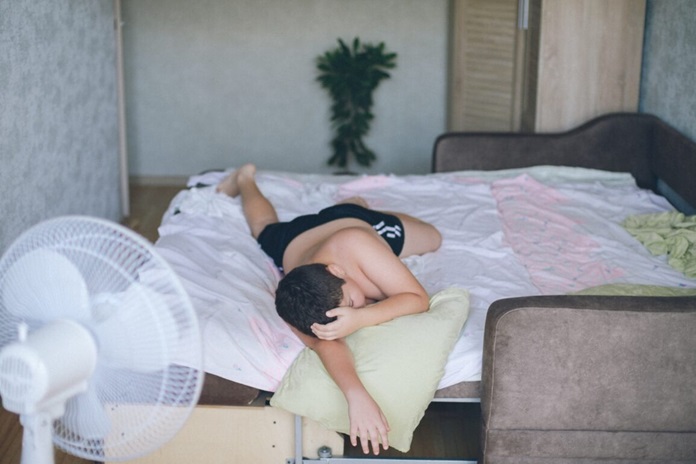As the summer arrived, the promise of long, sunny days and warm evenings brings an often-overlooked challenge: getting a good night’s sleep. Heatwaves can make restful nights a sweaty struggle which leaves us tossing and turning in search of comfort. The sweating temperatures can disrupt our sleep patterns and lead us to fatigue and various other issues in our daily lives. When you are not getting a proper good restful night, your cognitive performance drops, your memory suffers, and it becomes difficult to stay focused. Over time, even your long-term memory can be affected.
But don’t worry—there are practical solutions to this seasonal problem. This guide explores the top 8 tips for sleeping better during a heatwave, helping you stay cool, comfortable, and well-rested even when the mercury rises.
What Causes Sleep To Be Challenging In Hot Conditions?
Our body temperature drops naturally a bit when we are sleeping and a cool (but not cold) room is best for good sleep. You are more likely to toss and turn when it’s too hot which can disrupt your sleep.
According to sleep therapists, before you sleep, your body makes a hormone called melatonin that lowers your core body temperature, which is needed for sleep.
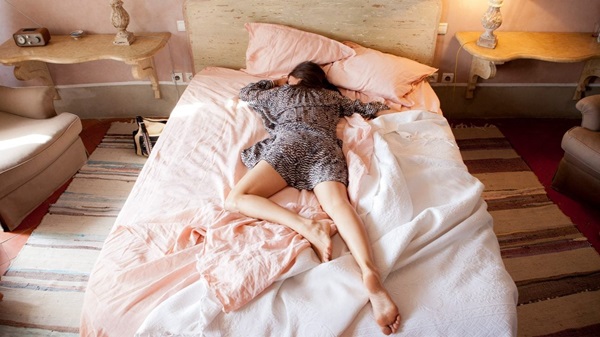
Melatonin controls our body’s natural sleep pattern and signals when it’s time to sleep. Our body starts making melatonin when it is dark and stops when it gets light, indicating it’s time to wake up.
People tend to sleep more in winter as the nights are longer and cooler, making it easier for our bodies to reach a comfortable sleeping temperature.
Optimize Your Bedroom Environment
Well, making a cool sleeping environment is a significant step to ensure comfort during a heatwave. You can make your bedroom more conducive to sleep by doing the following activities.
- Use Fans and Air Conditioning: Using a fan can be a good idea to circulate air and create a breeze that cools your skin. Place a bowl of ice in front of the fan for an added cooling effect. However, make sure it’s not set too cold to avoid dry air and excessive energy consumption.
- Block Out Heat: To avoid sunlight and prevent your room from heating up, keep blinds, curtains, or shades closed during the day. These Reflective or blackout curtains are particularly effective at reducing indoor temperatures.
- Ventilate at Night: Open windows and doors to allow cooler air to circulate after the outside temperature drops significantly at night. You can use fans to draw in cool air and expel warm air.
Also read, What Is Sleep Paralysis and How Does It Feel Like? Learn About its Causes and Treatments
Choose the Right Bedding
Choosing the right bedding helps in regulating your body temperature while you sleep. Opt for the following:
- Lightweight Sheets: During the hot summer, it is best to use sheets made from breathable materials like cotton or linen as these natural fibers help wick away moisture and allow air to circulate.
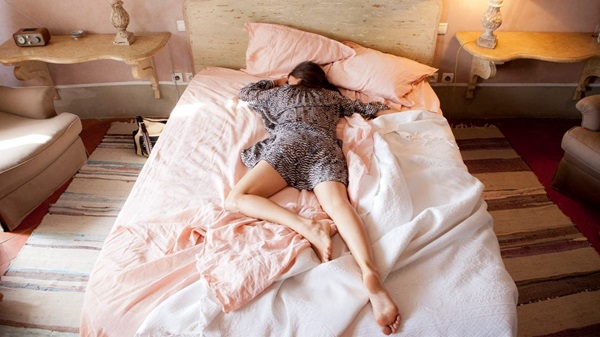
- Avoid Heavy Blankets: These heavy blankets are not favored in summer. Replacing them with a lighter blanket is the best possible option to avoid sweating nights. This lightweight is just enough cover without causing overheating.
- Cooling Mattress Pads and Pillows: It is best to invest in cooling mattress pads and pillows as they are designed with materials that help dissipate body heat and keep you cooler throughout the night.
Drink More Water
Drinking an adequate amount of water helps to regulate your body temperature and ensure a comfortable night’s sleep. Here’s how to manage your fluid intake:
- Drink Water Throughout the Day: Make sure you drink an adequate amount of water during the day. Dehydration can worsen the effects of heat.
- Limit the intake of Dehydrating Beverages: Reduce your intake of caffeine and alcohol, particularly in the evening, as they can lead to dehydration and disrupt your sleep.
- Hydrating Foods: It is beneficial to eat hydrating foods like watermelon, cucumbers, and oranges during summer. These can help maintain your hydration levels.

Cool Down Before Bed
Taking a bath before going to bed can be advantageous to lower your body temperature which helps you fall asleep faster and stay asleep longer. Try these techniques:
- Take a Lukewarm Shower: Taking a lukewarm shower aids in lowering your core body temperature. However, avoid cold showers as they can lead your body to retain heat once you get out.
- Cool Your Pulse Points: To cool down, place a cold pack or a damp washcloth on your pulse points, such as your wrists, neck, elbows, groin, ankles, and behind your knees. These areas have large blood vessels close to the skin and can help lower your body temperature.
Minimize Heat from Electronics
Limit using electronic devices as they generate heat, which can increase the temperature in your bedroom:
- Unplug Devices: Turn off and unplug electronic devices such as computers, TVs, and chargers before bed.
- Limit Screen Time: Avoid using electronic devices right before bed as the blue light emitted can interfere with your sleep cycle.
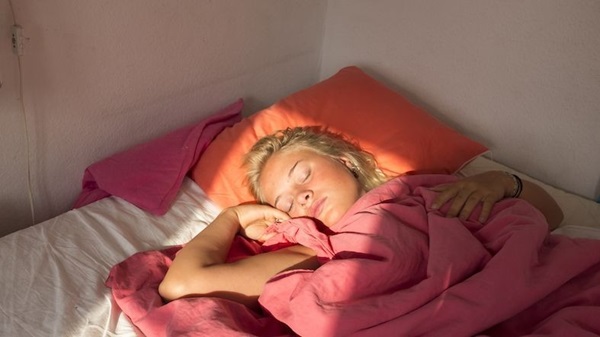
Create a Cooling Sleep Routine
Making a cooling sleep routine aids in improving your ability to fall asleep and stay asleep during a heatwave.
- Evening Exercise: An intense workout can raise your body temperature, so avoid vigorous physical activity close to bedtime. Opt for morning workouts instead.
- Wind Down: Try to engage in relaxing activities such as reading or meditation in a cool environment. This can help signal to your body that it’s time to sleep.
Wear Appropriate Sleepwear
It is important to note what you wear to bed as it can significantly impact your comfort level during a heatwave:
- Choose Lightweight, Breathable Fabrics: Opt for pajamas made from natural fibers such as cotton and avoid synthetic fabrics, which can trap heat and moisture.
- Loose-Fitting Clothes: Wearing loose-fitting sleepwear allows air circulation around your body. Tight clothing can restrict airflow and increase body heat.
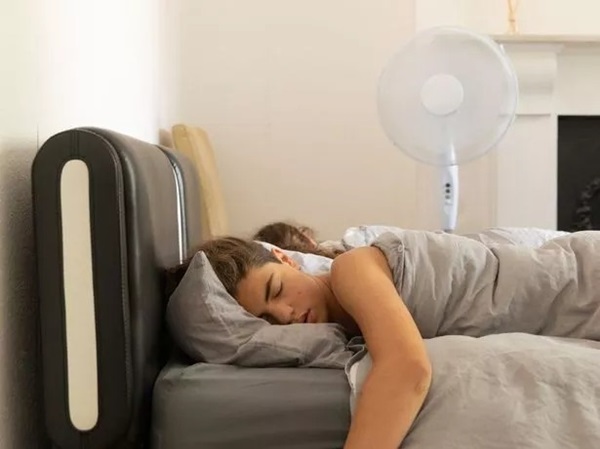
Adjust Your Sleep Schedule
Adapting your sleep schedule can help you cope with the heat:
- Sleep During Cooler Hours: If possible, try to adjust your sleep schedule to align with the cooler parts of the day. Take advantage of the early morning or late evening when temperatures are typically lower.
- Naps: Taking a short nap during the hottest part of the day can help you recharge without disrupting your overall sleep pattern if you’re struggling to sleep at night.
Frequently Askest Question
Why is it important to sleep in a cool environment during a heatwave?
Sleeping in a cool environment is essential during a heatwave because high temperatures can disrupt your sleep cycle which can lead to restlessness and discomfort. Maintaining your sleep environment aids in regulating your body temperature, allowing you to fall asleep faster and stay asleep longer.
How to sleep better in hot weather?
- Optimize Your Bedroom Environment
- Choose the Right Bedding
- Drink More Water
- Cool Down Before Bed
- Minimize Heat from Electronics
- Create a Cooling Sleep Routine
- Wear Appropriate Sleepwear
- Adjust Your Sleep Schedule
You may also like to read, Sleep Disorders Demystified: Common Conditions and Effective Treatments
